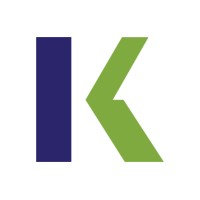
Oklahoma City Public Schools Company Cyber Security Posture
okcps.orgOklahoma City Public Schools (OKCPS) is a multi-cultural district serving approximately 34,000 students. Our students are educated throughout 55 neighborhood elementary schools, 17 secondary schools, 4 special centers, and 12 charter schools located in a 135.5 square miles in the center of Oklahoma. We employ approximately 4,600 administrators, teachers, and support personnel who serve a student population which is comprised of 2% Asian, 3% Native American, 16% Caucasian, 24% African American, and 51% Hispanic individuals. Additionally, 34% of our students are English Language Learners. Our students and their families represent 37 different languages; top two being English with 65% and Spanish with 34%. OKCPS offers 8 different special education programs across the district to serve the 13% of our population with disabilities or special needs.
OCPS Company Details
oklahoma-city-public-schools
2627 employees
5546.0
923
Education Administration Programs
okcps.org
Scan still pending
OKL_2429063
In-progress
Between 900 and 1000
This score is AI-generated and less favored by cyber insurers, who prefer the TPRM score.
 OCPS Global Score
OCPS Global Score.png)

Oklahoma City Public Schools Company Scoring based on AI Models
| Model Name | Date | Description | Current Score Difference | Score |
|---|---|---|---|---|
| AVERAGE-Industry | 03-12-2025 | This score represents the average cybersecurity rating of companies already scanned within the same industry. It provides a benchmark to compare an individual company's security posture against its industry peers. | N/A | Between 900 and 1000 |
Oklahoma City Public Schools Company Cyber Security News & History
| Entity | Type | Severity | Impact | Seen | Url ID | Details | View |
|---|---|---|---|---|---|---|---|
| Oklahoma City Public Schools | Cyber Attack | 100 | 5 | 09/2018 | OKL192828922 | Link | |
Rankiteo Explanation : Attack threatening the organization's existenceDescription: The Oklahoma City Public School District has been affected by a “denial of service” attack on an information system housing their parent portal. OKCPS student information system down after ‘denial of service’ attack. According to the school district, an attack on Infinite Campus, one of the largest student information systems in America, is limiting customers’ ability to access their web-hosted applications. The school district says the issue is not a data breach and Infinite Campus has not been hacked. | |||||||
| Oklahoma City Public Schools | Ransomware | 85 | 3 | 05/2019 | OKL204791122 | Link | |
Rankiteo Explanation : Attack with significant impact with internal employee data leaksDescription: Oklahoma City Public Schools fell victim to a recent ransomware attack that compromised the district’s network. Its network was significantly compromised by a form of malware” and the issue continued to worsen. | |||||||
Oklahoma City Public Schools Company Subsidiaries

Oklahoma City Public Schools (OKCPS) is a multi-cultural district serving approximately 34,000 students. Our students are educated throughout 55 neighborhood elementary schools, 17 secondary schools, 4 special centers, and 12 charter schools located in a 135.5 square miles in the center of Oklahoma. We employ approximately 4,600 administrators, teachers, and support personnel who serve a student population which is comprised of 2% Asian, 3% Native American, 16% Caucasian, 24% African American, and 51% Hispanic individuals. Additionally, 34% of our students are English Language Learners. Our students and their families represent 37 different languages; top two being English with 65% and Spanish with 34%. OKCPS offers 8 different special education programs across the district to serve the 13% of our population with disabilities or special needs.
Access Data Using Our API

Get company history
.png)
OCPS Cyber Security News
Student information from multiple Oklahoma school districts breached in cybersecurity hack
Several school districts in the Oklahoma City area are on high alert after finding out a nationwide software vendor they use was hacked.
Software Provider Used In Some Oklahoma Schools Target Of Cybersecurity Attack
PowerSchool, a software used in some school districts across the state, is investigating a data breach that leaked sensitive information on ...
Split US Supreme Court blocks taxpayer-funded religious charter school
The Oklahoma charter school board in 2023 voted 3-2 to approve St. Isidore. Oklahoma's top court in a 6-2 ruling last year blocked the school.
Cyber attack disrupts Bartlesville school systems in Oklahoma
A cyber incident has severely disrupted digital infrastructure at Bartlesville Public Schools in Oklahoma, halting state testing and ...
Local schools hit by PowerSchool data breach affecting student and staff information
Local school districts are finding out they've been impacted by a data breach that happened late last year to PowerSchool, a student information system ...
Hackers launch ‘serious’ attacks against Georgia school district, New Mexico university
Ransomware gangs have ramped up attacks on colleges and K-12 schools in April and May, likely hoping the need for technology during final exams ...
PowerSchool sees data breach, impacting school districts
A recent data breach appears to be impacting the youngest Oklahomans and their families. Mustang, Yukon, Enid, Putnam City, and Epic Charter are just some of ...
New Report Finds 76% of School Administrators Lack Confidence in Current Protections for Student Digital Identities
"Digital learning is here to stay. Schools have a tough balance to strike between security and accessibility," said Trish Sparks, CEO of Clever.
Oklahoma higher education officials ask to raise funding by $95 million, release legislative agenda
Oklahoma's higher education officials announced Thursday a $1.12 billion budget request for fiscal year 2026 and their legislative agenda.

OCPS Similar Companies

Kaplan
Kaplan is a global educational services company that provides individuals, universities, and businesses with a diverse array of services, including higher and professional education, test preparation, language training, corporate and leadership training, and student recruitment, online enablement an

Department of Education, Western Australia
A strong education system is the cornerstone of every successful society. The Department of Education provides high quality education for children and young people throughout Western Australia, helping them reach their full potential. Visit our website to discover more about our schools, our studen

Bright Horizons
More than 1,000 top employers trust Bright Horizons® (NYSE: BFAM) for proven solutions that support employees, advance careers, and maximize performance. From on-site child care that amplify your culture, back-up care to handle disruptions, and education programs that build critical skills, our serv
Beaconhouse Group
The Beaconhouse School System has risen from its modest beginnings in 1975 as Les Anges Montessori Academy to become a major force in the education world. With an ever-expanding base, already established in Malaysia, the Philippines, Pakistan, the UAE, Oman, Belgium and Thailand, Beaconhouse is one

TAFE NSW
TAFE NSW is one of Australia's leading vocational education and training provider with over 100 years of experience. It caters for students at the local level, the national level and the international level. TAFE NSW has over 130 locations across the state. Through a series of forums, TAFE NSW work

EF Education First
Founded in 1965, EF Education First is a global association of education companies that shares a common mission of opening the world through education, offering language, academic, cultural exchange, and education travel programs. Some companies are in the business of technology. Others are in the

Frequently Asked Questions (FAQ) on Cybersecurity Incidents
OCPS CyberSecurity History Information
Total Incidents: According to Rankiteo, OCPS has faced 2 incidents in the past.
Incident Types: The types of cybersecurity incidents that have occurred include ['Cyber Attack', 'Ransomware'].
Total Financial Loss: The total financial loss from these incidents is estimated to be {total_financial_loss}.
Cybersecurity Posture: The company's overall cybersecurity posture is described as Oklahoma City Public Schools (OKCPS) is a multi-cultural district serving approximately 34,000 students. Our students are educated throughout 55 neighborhood elementary schools, 17 secondary schools, 4 special centers, and 12 charter schools located in a 135.5 square miles in the center of Oklahoma. We employ approximately 4,600 administrators, teachers, and support personnel who serve a student population which is comprised of 2% Asian, 3% Native American, 16% Caucasian, 24% African American, and 51% Hispanic individuals. Additionally, 34% of our students are English Language Learners. Our students and their families represent 37 different languages; top two being English with 65% and Spanish with 34%. OKCPS offers 8 different special education programs across the district to serve the 13% of our population with disabilities or special needs..
Detection and Response: The company detects and responds to cybersecurity incidents through {description_of_detection_and_response_process}.
Incident Details
Incident 1: Ransomware Attack
Title: {Incident_Title}
Description: {Brief_description_of_the_incident}
Date Detected: {Detection_Date}
Date Publicly Disclosed: {Disclosure_Date}
Date Resolved: {Resolution_Date}
Type: {Type_of_Attack}
Attack Vector: {Attack_Vector}
Vulnerability Exploited: {Vulnerability}
Threat Actor: {Threat_Actor}
Motivation: {Motivation}
Incident 2: Data Breach
Title: {Incident_Title}
Description: {Brief_description_of_the_incident}
Date Detected: {Detection_Date}
Date Publicly Disclosed: {Disclosure_Date}
Date Resolved: {Resolution_Date}
Type: {Type_of_Attack}
Attack Vector: {Attack_Vector}
Vulnerability Exploited: {Vulnerability}
Threat Actor: {Threat_Actor}
Motivation: {Motivation}
Common Attack Types: As of now, the company has not encountered any reported incidents involving common cyberattacks.
Identification of Attack Vectors: The company identifies the attack vectors used in incidents through {description_of_identification_process}.
Impact of the Incidents
Incident 1: Ransomware Attack
Financial Loss: {Financial_Loss}
Data Compromised: {Data_Compromised}
Systems Affected: {Systems_Affected}
Downtime: {Downtime}
Operational Impact: {Operational_Impact}
Conversion Rate Impact: {Conversion_Rate_Impact}
Revenue Loss: {Revenue_Loss}
Customer Complaints: {Customer_Complaints}
Brand Reputation Impact: {Brand_Reputation_Impact}
Legal Liabilities: {Legal_Liabilities}
Identity Theft Risk: {Identity_Theft_Risk}
Payment Information Risk: {Payment_Information_Risk}
Incident 2: Data Breach
Financial Loss: {Financial_Loss}
Data Compromised: {Data_Compromised}
Systems Affected: {Systems_Affected}
Downtime: {Downtime}
Operational Impact: {Operational_Impact}
Conversion Rate Impact: {Conversion_Rate_Impact}
Revenue Loss: {Revenue_Loss}
Customer Complaints: {Customer_Complaints}
Brand Reputation Impact: {Brand_Reputation_Impact}
Legal Liabilities: {Legal_Liabilities}
Identity Theft Risk: {Identity_Theft_Risk}
Payment Information Risk: {Payment_Information_Risk}
Average Financial Loss: The average financial loss per incident is {average_financial_loss}.
Commonly Compromised Data Types: The types of data most commonly compromised in incidents are {list_of_commonly_compromised_data_types}.
Incident 1: Ransomware Attack
Entity Name: {Entity_Name}
Entity Type: {Entity_Type}
Industry: {Industry}
Location: {Location}
Size: {Size}
Customers Affected: {Customers_Affected}
Incident 2: Data Breach
Entity Name: {Entity_Name}
Entity Type: {Entity_Type}
Industry: {Industry}
Location: {Location}
Size: {Size}
Customers Affected: {Customers_Affected}
Response to the Incidents
Incident 1: Ransomware Attack
Incident Response Plan Activated: {Yes/No}
Third Party Assistance: {Yes/No}
Law Enforcement Notified: {Yes/No}
Containment Measures: {Containment_Measures}
Remediation Measures: {Remediation_Measures}
Recovery Measures: {Recovery_Measures}
Communication Strategy: {Communication_Strategy}
Adaptive Behavioral WAF: {Adaptive_Behavioral_WAF}
On-Demand Scrubbing Services: {On_Demand_Scrubbing_Services}
Network Segmentation: {Network_Segmentation}
Enhanced Monitoring: {Enhanced_Monitoring}
Incident 2: Data Breach
Incident Response Plan Activated: {Yes/No}
Third Party Assistance: {Yes/No}
Law Enforcement Notified: {Yes/No}
Containment Measures: {Containment_Measures}
Remediation Measures: {Remediation_Measures}
Recovery Measures: {Recovery_Measures}
Communication Strategy: {Communication_Strategy}
Adaptive Behavioral WAF: {Adaptive_Behavioral_WAF}
On-Demand Scrubbing Services: {On_Demand_Scrubbing_Services}
Network Segmentation: {Network_Segmentation}
Enhanced Monitoring: {Enhanced_Monitoring}
Incident Response Plan: The company's incident response plan is described as {description_of_incident_response_plan}.
Third-Party Assistance: The company involves third-party assistance in incident response through {description_of_third_party_involvement}.
Data Breach Information
Incident 2: Data Breach
Type of Data Compromised: {Type_of_Data}
Number of Records Exposed: {Number_of_Records}
Sensitivity of Data: {Sensitivity_of_Data}
Data Exfiltration: {Yes/No}
Data Encryption: {Yes/No}
File Types Exposed: {File_Types}
Personally Identifiable Information: {Yes/No}
Prevention of Data Exfiltration: The company takes the following measures to prevent data exfiltration: {description_of_prevention_measures}.
Handling of PII Incidents: The company handles incidents involving personally identifiable information (PII) through {description_of_handling_process}.
Ransomware Information
Incident 1: Ransomware Attack
Ransom Demanded: {Ransom_Amount}
Ransom Paid: {Ransom_Paid}
Ransomware Strain: {Ransomware_Strain}
Data Encryption: {Yes/No}
Data Exfiltration: {Yes/No}
Ransom Payment Policy: The company's policy on paying ransoms in ransomware incidents is described as {description_of_ransom_payment_policy}.
Data Recovery from Ransomware: The company recovers data encrypted by ransomware through {description_of_data_recovery_process}.
Regulatory Compliance
Incident 1: Ransomware Attack
Regulations Violated: {Regulations_Violated}
Fines Imposed: {Fines_Imposed}
Legal Actions: {Legal_Actions}
Regulatory Notifications: {Regulatory_Notifications}
Incident 2: Data Breach
Regulations Violated: {Regulations_Violated}
Fines Imposed: {Fines_Imposed}
Legal Actions: {Legal_Actions}
Regulatory Notifications: {Regulatory_Notifications}
Regulatory Frameworks: The company complies with the following regulatory frameworks regarding cybersecurity: {list_of_regulatory_frameworks}.
Ensuring Regulatory Compliance: The company ensures compliance with regulatory requirements through {description_of_compliance_measures}.
Lessons Learned and Recommendations
Incident 1: Ransomware Attack
Lessons Learned: {Lessons_Learned}
Incident 2: Data Breach
Lessons Learned: {Lessons_Learned}
Incident 1: Ransomware Attack
Recommendations: {Recommendations}
Incident 2: Data Breach
Recommendations: {Recommendations}
Key Lessons Learned: The key lessons learned from past incidents are {list_of_key_lessons_learned}.
Implemented Recommendations: The company has implemented the following recommendations to improve cybersecurity: {list_of_implemented_recommendations}.
References
Additional Resources: Stakeholders can find additional resources on cybersecurity best practices at {list_of_additional_resources}.
Investigation Status
Incident 1: Ransomware Attack
Investigation Status: {Investigation_Status}
Incident 2: Data Breach
Investigation Status: {Investigation_Status}
Communication of Investigation Status: The company communicates the status of incident investigations to stakeholders through {description_of_communication_process}.
Stakeholder and Customer Advisories
Incident 1: Ransomware Attack
Stakeholder Advisories: {Stakeholder_Advisories}
Customer Advisories: {Customer_Advisories}
Incident 2: Data Breach
Stakeholder Advisories: {Stakeholder_Advisories}
Customer Advisories: {Customer_Advisories}
Advisories Provided: The company provides the following advisories to stakeholders and customers following an incident: {description_of_advisories_provided}.
Initial Access Broker
Incident 1: Ransomware Attack
Entry Point: {Entry_Point}
Reconnaissance Period: {Reconnaissance_Period}
Backdoors Established: {Backdoors_Established}
High Value Targets: {High_Value_Targets}
Data Sold on Dark Web: {Yes/No}
Incident 2: Data Breach
Entry Point: {Entry_Point}
Reconnaissance Period: {Reconnaissance_Period}
Backdoors Established: {Backdoors_Established}
High Value Targets: {High_Value_Targets}
Data Sold on Dark Web: {Yes/No}
Monitoring and Mitigation of Initial Access Brokers: The company monitors and mitigates the activities of initial access brokers through {description_of_monitoring_and_mitigation_measures}.
Post-Incident Analysis
Incident 1: Ransomware Attack
Root Causes: {Root_Causes}
Corrective Actions: {Corrective_Actions}
Incident 2: Data Breach
Root Causes: {Root_Causes}
Corrective Actions: {Corrective_Actions}
Post-Incident Analysis Process: The company's process for conducting post-incident analysis is described as {description_of_post_incident_analysis_process}.
Corrective Actions Taken: The company has taken the following corrective actions based on post-incident analysis: {list_of_corrective_actions_taken}.
Additional Questions
General Information
Ransom Payment History: The company has {paid/not_paid} ransoms in the past.
Last Ransom Demanded: The amount of the last ransom demanded was {last_ransom_amount}.
Last Attacking Group: The attacking group in the last incident was {last_attacking_group}.
Incident Details
Most Recent Incident Detected: The most recent incident detected was on {most_recent_incident_detected_date}.
Most Recent Incident Publicly Disclosed: The most recent incident publicly disclosed was on {most_recent_incident_publicly_disclosed_date}.
Most Recent Incident Resolved: The most recent incident resolved was on {most_recent_incident_resolved_date}.
Impact of the Incidents
Highest Financial Loss: The highest financial loss from an incident was {highest_financial_loss}.
Most Significant Data Compromised: The most significant data compromised in an incident was {most_significant_data_compromised}.
Most Significant System Affected: The most significant system affected in an incident was {most_significant_system_affected}.
Response to the Incidents
Third-Party Assistance in Most Recent Incident: The third-party assistance involved in the most recent incident was {third_party_assistance_in_most_recent_incident}.
Containment Measures in Most Recent Incident: The containment measures taken in the most recent incident were {containment_measures_in_most_recent_incident}.
Data Breach Information
Most Sensitive Data Compromised: The most sensitive data compromised in a breach was {most_sensitive_data_compromised}.
Number of Records Exposed: The number of records exposed in the most significant breach was {number_of_records_exposed}.
Ransomware Information
Highest Ransom Demanded: The highest ransom demanded in a ransomware incident was {highest_ransom_demanded}.
Highest Ransom Paid: The highest ransom paid in a ransomware incident was {highest_ransom_paid}.
Regulatory Compliance
Highest Fine Imposed: The highest fine imposed for a regulatory violation was {highest_fine_imposed}.
Most Significant Legal Action: The most significant legal action taken for a regulatory violation was {most_significant_legal_action}.
Lessons Learned and Recommendations
Most Significant Lesson Learned: The most significant lesson learned from past incidents was {most_significant_lesson_learned}.
Most Significant Recommendation Implemented: The most significant recommendation implemented to improve cybersecurity was {most_significant_recommendation_implemented}.
References
Most Recent Source: The most recent source of information about an incident is {most_recent_source}.
Most Recent URL for Additional Resources: The most recent URL for additional resources on cybersecurity best practices is {most_recent_url}.
Investigation Status
Current Status of Most Recent Investigation: The current status of the most recent investigation is {current_status_of_most_recent_investigation}.
Stakeholder and Customer Advisories
Most Recent Stakeholder Advisory: The most recent stakeholder advisory issued was {most_recent_stakeholder_advisory}.
Most Recent Customer Advisory: The most recent customer advisory issued was {most_recent_customer_advisory}.
Initial Access Broker
Most Recent Entry Point: The most recent entry point used by an initial access broker was {most_recent_entry_point}.
Most Recent Reconnaissance Period: The most recent reconnaissance period for an incident was {most_recent_reconnaissance_period}.
Post-Incident Analysis
Most Significant Root Cause: The most significant root cause identified in post-incident analysis was {most_significant_root_cause}.
Most Significant Corrective Action: The most significant corrective action taken based on post-incident analysis was {most_significant_corrective_action}.
What Do We Measure?
















Every week, Rankiteo analyzes billions of signals to give organizations a sharper, faster view of emerging risks. With deeper, more actionable intelligence at their fingertips, security teams can outpace threat actors, respond instantly to Zero-Day attacks, and dramatically shrink their risk exposure window.
These are some of the factors we use to calculate the overall score:
Identify exposed access points, detect misconfigured SSL certificates, and uncover vulnerabilities across the network infrastructure.
Gain visibility into the software components used within an organization to detect vulnerabilities, manage risk, and ensure supply chain security.
Monitor and manage all IT assets and their configurations to ensure accurate, real-time visibility across the company's technology environment.
Leverage real-time insights on active threats, malware campaigns, and emerging vulnerabilities to proactively defend against evolving cyberattacks.




